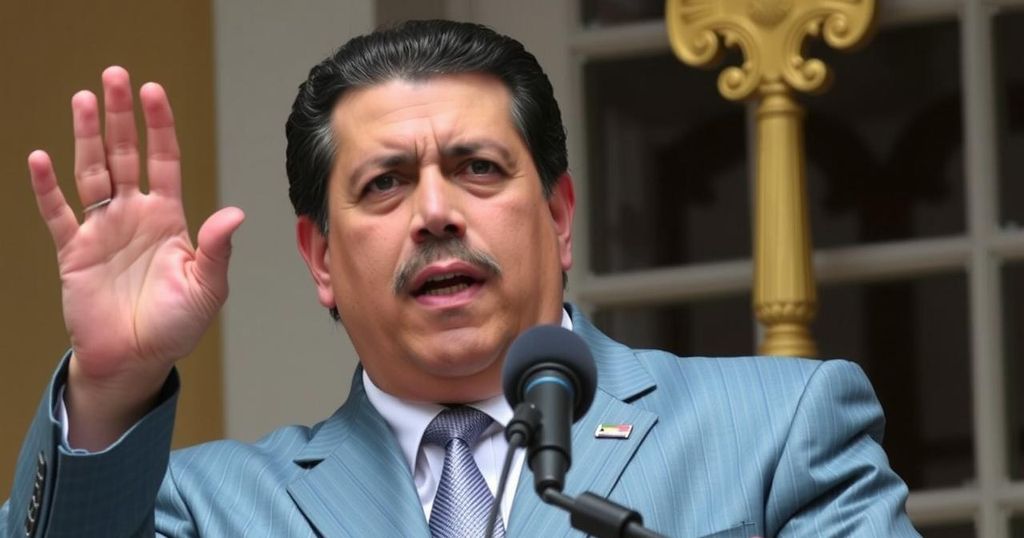On January 5, Nicolás Maduro was inaugurated for his third term as President of Venezuela, amidst significant evidence of election misconduct favoring his opponent, Edmundo González. Protests erupted, leading to arrests and international condemnation. Despite a heavily guarded ceremony, Maduro claimed victory over external and internal challenges, while the opposition sought to undermine his legitimacy, resulting in further calls for reform in the nation.
On Friday, Venezuelan President Nicolás Maduro was inaugurated for a third six-year term, a continuation of his increasingly authoritative governance until 2031. This event transpired amidst notable protests and substantial evidence suggesting his opponent, Edmundo González, was the rightful victor of the recent election. With heavy security present, Maduro delivered a vigorous speech from the legislative palace, declaring the opposition’s attempts to deride his presidency as a failure and asserting that external forces, particularly the United States, were orchestrating attacks against Venezuela.
The opposition had gathered extensive evidence, having collected tallies from over 80% of electronic voting machines used in the election. They claimed that these results indicated González received double the votes of Maduro. Observations from international monitors, including the Carter Center, supported the opposition’s data. As international criticism mounted, the European Union and the United States imposed sanctions on numerous Venezuelan officials, underlining the perceived threat to democracy within the nation.
During the inauguration, tensions escalated when notable opposition leader María Corina Machado was reportedly detained, leading to widespread condemnation from global leaders concerned about the repression of dissent. Meanwhile, Maduro’s supporters celebrated outside the inauguration, displaying relief that González was not the assumed president. The event hosted by the ruling party’s National Assembly saw the attendance of only select heads of state, reflective of Maduro’s controversial standing on the international stage.
Furthermore, uncertainties loom regarding the future of the opposition, particularly concerning González, who remains in exile under threats of arrest upon his return to Venezuela. The climate of fear and repression persists as the government combats allegations of electoral misconduct and represses protests, resulting in significant unrest across the nation.
The political landscape in Venezuela has been tumultuous, particularly since Nicolás Maduro’s rise to power amid allegations of election fraud. The country’s systemic issues, exacerbated by political repression and a faltering economy, have led to widespread dissatisfaction. The opposition, despite governmental restrictions, has mobilized significant evidence indicating electoral irregularities in a recent election. The deteriorating conditions in Venezuela, including accusations of human rights abuses and suppression of dissent, have drawn international concern and sanctions from foreign nations. The opposition leader, Edmundo González, has been at the center of these conflicts, asserting his position against Maduro and garnering support from various sectors within and outside the country. In light of these complexities, the swearing-in ceremony epitomized the ongoing struggle between oppressive governance and demands for democratic reforms within Venezuela.
The inauguration of Nicolás Maduro contradicts the demonstrated evidence of electoral malpractice, underscoring a broader narrative of political repression in Venezuela. Amidst international sanctioning and widespread protests, the event revealed deep divisions within the nation and raised critical questions regarding the legitimacy of Maduro’s presidency as well as the fate of the opposition. The ongoing tensions reiterate the urgent need for dialogue and reform to restore democracy in Venezuela.
Original Source: www.newsday.com






